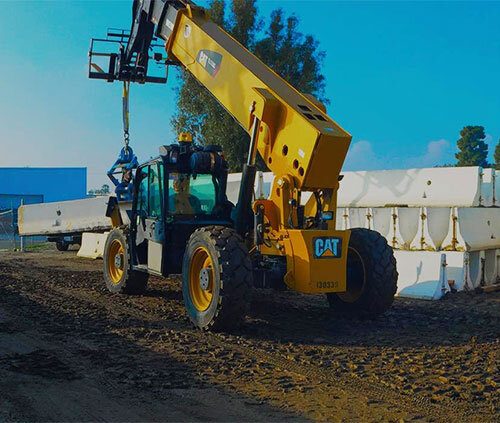Heavy Equipment Rental: Huge Equipment for Any Construction Job
Heavy Equipment Rental: Huge Equipment for Any Construction Job
Blog Article
Optimize Your Budget Plan by Understanding the Prices Connected With Building Equipment Services
Comprehending the complete range of expenses connected with building and construction tools rentals is important for maximizing your spending plan. While the preliminary rental fee might appear straightforward, various added expenses-- such as transportation, gas additional charges, and maintenance-- can swiftly collect, affecting your financial preparation. In addition, recognizing numerous fees and the complexities of rental contracts can help avoid unanticipated economic concerns. What techniques can be utilized to properly take care of these costs and guarantee a more effective rental experience?
Summary of Rental Expenses
When considering building tools services, comprehending the linked costs is extremely important for efficient budgeting and task preparation. Rental prices can differ substantially based on numerous elements, including tools kind, period of rental, and location. The first rental cost usually mirrors the equipment's market demand and its linked operational capacities, influencing the general cost.
Along with the base rental rate, supplementary prices may emerge, such as transport costs, gas additional charges, and maintenance charges. It is necessary to represent these added expenses to accurately analyze the total expense of renting devices. The rental duration can affect pricing; longer leasings might qualify for affordable prices, while temporary rentals might incur greater day-to-day costs.

Failure of Rental Rates
A comprehensive understanding of rental prices is vital for professionals and task supervisors aiming to optimize their budget plans. Rental rates for construction equipment normally include a number of parts, consisting of base rates, time-based fees, and usage fees.
Base prices are the core costs associated with the rental of the devices, typically identified by the kind and size of the machinery. These prices can vary significantly, affected by aspects such as equipment demand, accessibility, and regional market patterns. Time-based costs, which might be daily, weekly, or monthly, serve to accommodate different project timelines and rental durations.
Furthermore, rental rates may include use costs, which are appropriate when devices is used beyond a specified threshold, guaranteeing that the rental company can make up deterioration. Seasonal need fluctuations can additionally impact rental prices, with peak building and construction seasons generally regulating greater prices.
Additionally, understanding the rental company's plans regarding maintenance and insurance policy can provide further insight into the general cost framework. By examining these parts, professionals can make informed choices, guaranteeing the choice of rental equipment straightens with both task needs and budget plan constraints.
Extra Costs to Think About
Understanding the complexities of additional fees is critical for contractors to handle their general service costs efficiently. Past the common rental rates, different supplemental fees can significantly influence the overall cost of equipment service. These costs often consist of delivery and pick-up charges, which can vary based upon distance and logistics associated with moving the devices to and from the work site.
Furthermore, some rental companies might impose fuel additional charges if the tools is returned with much less gas than when rented. It is also necessary to recognize potential cleaning fees, especially for customized tools that calls for comprehensive maintenance after use.

Thoroughly assessing the rental agreement and making mobile heavy machinery clear these additional fees upfront can help professionals make sure and stay clear of unexpected costs that spending plans remain undamaged throughout the project lifecycle.
Repair And Maintenance Expenditures
Normal repair and maintenance costs are often ignored elements that can significantly affect the total expense of building equipment leasings. When renting equipment, it is important to think about not just the rental fees but additionally the possible prices connected with keeping the equipment in optimum operating problem.
Several rental companies include basic maintenance as part of the rental contract; however, much more unanticipated breakdowns or considerable repair services can result in added expenses. It's important to assess the rental contract very carefully to understand what maintenance services are covered and what obligations drop on the renter.
Additionally, devices that is not well-maintained can cause ineffectiveness at work site, potentially creating hold-ups and boosting project expenses. To reduce these dangers, it is suggested to perform regular inspections and keep open interaction with the rental provider relating to any type of problems find out this here that develop throughout usage.
Insurance and Liability Expenses
Insurance policy and obligation expenses are vital parts that can substantially impact the overall expenditure of building and construction equipment rentals (equipment rental company). These prices make sure that both the rental firm and the customer are shielded from possible financial losses emerging from accidents, damage, or theft during the rental period

In addition, clients need to know any type of deductibles or exemptions in the insurance coverage plan, as these can influence potential out-of-pocket expenses. Recognizing the conditions of any kind of insurance protection is crucial to stay clear of unanticipated costs. Eventually, budgeting for insurance coverage and liability expenses can help make sure a smoother rental experience and secure versus monetary dangers connected with building and construction jobs.
Verdict
In conclusion, a thorough understanding of the prices connected with building equipment rentals is essential for effective budget management. Ultimately, notified decision-making relating to tools services contributes to the general success of building undertakings.
Rental expenses can differ substantially based on numerous factors, consisting of tools kind, period of leasing, and area (construction equipment rentals). The rental duration can influence pricing; longer leasings may certify for affordable prices, while temporary rentals could sustain higher day-to-day charges
By carrying out thorough research study and involving with trusted rental firms, service providers can effectively navigate the complexities of rental rates, eventually optimizing their economic resources.
Beyond the conventional rental rates, various auxiliary costs can substantially influence the complete cost of devices rental. Rental companies frequently provide responsibility insurance coverage that covers injuries to third events or damage to building, while tools damages insurance can cover the expense of fixings or substitute if the leased tools is harmed.
Report this page